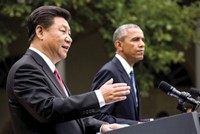Advertisement
Grab your lab coat. Let's get started
Welcome!
Welcome!
Create an account below to get 6 C&EN articles per month, receive newsletters and more - all free.
It seems this is your first time logging in online. Please enter the following information to continue.
As an ACS member you automatically get access to this site. All we need is few more details to create your reading experience.
Not you? Sign in with a different account.
Not you? Sign in with a different account.
ERROR 1
ERROR 1
ERROR 2
ERROR 2
ERROR 2
ERROR 2
ERROR 2
Password and Confirm password must match.
If you have an ACS member number, please enter it here so we can link this account to your membership. (optional)
ERROR 2
ACS values your privacy. By submitting your information, you are gaining access to C&EN and subscribing to our weekly newsletter. We use the information you provide to make your reading experience better, and we will never sell your data to third party members.
Environment
New International Energy Program
Technology Transfer: Some $350 million set aside to encourage renewable energy deployment in developing world
by Jeff Johnson and Cheryl Hogue
December 14, 2009

Energy Secretary Steven Chu announced on Dec. 14 a new global plan to encourage development and deployment of renewable energy technologies in the developing world. Some $350 million over five years will be provided through the Climate Renewables & Efficiency Deployment Initiative, Chu announced at the United Nations climate conference ongoing in Copenhagen.
Chu explained that the funds will be divided among four programs, including one to accelerate deployment of inexpensive solar home systems and light emitting diode lanterns to replace kerosene home lighting. Other programs will encourage rapid deployment of energy saving appliances in developing nations, provide an online platform for countries to exchange technical information, and scale-up a World Bank fund to provide technical energy assistance to low-income countries.
Most of the funding--some $250 million--will support the World Bank program and the remaining $100 million will fund the solar, energy efficiency, and the technical information exchange. The U.S. will contribute $85 million with the rest coming from other developed countries.
In Copenhagen, Chu also discussed the thorny issue of protection of intellectual property rights while helping developing nations adopt new cleaner energy technologies.
Chu stressed that protecting these rights can prove to be "a stimulant for innovation." At the same time, he told reporters, the goal is to transfer cleaner technology as quickly as possible throughout the world.
Over the last two months, Chu has met with government officials and scientists in India and China discussing R&D of advanced non-fossil fuel energy technologies as well as opportunities to develop such new technologies. The bilateral cooperative research agreements, he said, can in fact forge a new model for development of energy technology.
"What's so fun about what we're trying to do in China, India, and other countries," he said, "is if both countries put in the same amount of money, you get together, you co-invent things."
If the U.S. and a developing country co-invent something, Chu said, "We co-own it--and we can use it in our respective countries."
The Union of Concerned Scientists applauded the announcement but Rachel Cleetus, an economist with the group, warned that "much more will be needed in short and long term financing to truly scale up low carbon technologies globally."




Join the conversation
Contact the reporter
Submit a Letter to the Editor for publication
Engage with us on Twitter